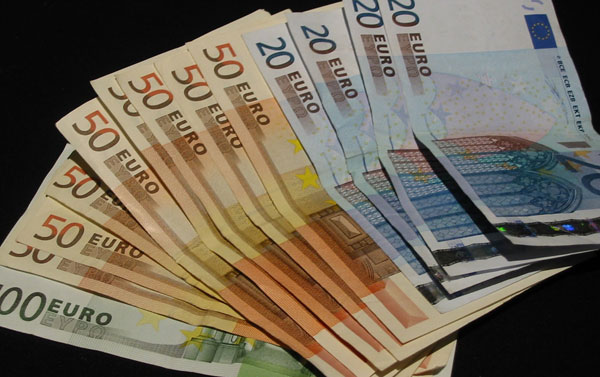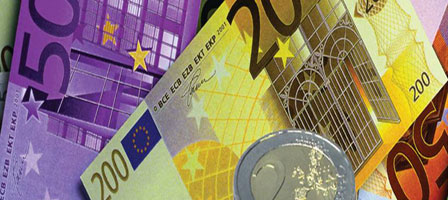One of the more difficult decisions facing investors is what is going to happen to the euro.
Not only for those of us who don’t regard it as our base currency. After all, the euro is the world’s most important currency after the dollar. If you fear the impact of a weakening dollar on the value of your savings, you have to look to alternative currencies, of which the euro is the most important.
Most people think China is now the world’s second largest economy, but the Eurozone is still much bigger. It’s home to some of the world’s most important multinationals, and their shares are open to foreign investors in a way that China’s are not. Its bonds are some of the world’s safest and most tradeable, such as the formidable German government Bunds.
Looking back through my files reminds me how much the financial media have been filled with pessimism about the euro, largely based on assumptions that the European political elite would be unable to deal with the region’s debt crisis without defaults, a break-up of the zone, or crippling public hostility to required austerity.
The pessimists have been wrong. Defaults have been limited to a micro-state, Cyprus. The Eurozone shows no sign of breaking up, but instead has been inching towards more centralized fiscal control. Amazingly, the backlash against the pains of austerity – unemployment, destroyed businesses, cuts in benefits and subsidies – has been contained in the countries worst affected.
In terms of the dollar, the euro has been rising in value for almost two years, from below 1.21 to about 1.38 now. This is bad news for the region’s exporters (a strengthening currency makes it harder to compete on world markets), good news for consumers and businesses geared to imported products such as oil (which have tended to become cheaper in euro terms).
But it creates a worsening problem for policymakers, particularly those at the European Central Bank.
The Eurozone economy is sluggish, weighed down by an abundance of welfare costs and regulations hostile to economic growth, banks choked with toxic assets, and austerity imposed on the “Club Med” countries by their bloated debt burdens.
One consequence is extremely low inflation – now only ½ per cent a year. There is an increasing risk that prices will stop rising at all, and start to fall – deflation.
All central banks are terrified of deflation, because it makes it much harder to prevent economic slowdown sliding into a depression, and to engineer recovery.
Over the past five years, when the world has been slowly recovering from the shock of the financial crisis, Europe’s has been the most conservative of the major central banks. While the US, the UK, China and Japan have pursued aggressive easy-money policies, the European Central Bank has done little more than provide unlimited credit to commercial banks. So far, it has avoided quantitative easing (“printing” money to buy government bonds).
This may be about to change.
If economic conditions in Europe worsen, or if the euro’s exchange rates continue to rise and so increase the risks of worsening conditions, that could force the central bank to be much more aggressive in deploying monetary weapons.
It does face legal constraints that Germany insisted on when the Eurozone was established as the price of abandoning their much-loved deutschemark because of their fear of eventually being forced to go to the aid of profligate “Club Med” countries.
But Germany has ended up doing that anyway, largely by lending through the Eurozone banking system.
Politicians and government officials of the European Union and its currency-based sub-group the Eurozone have proved adept at circumventing constitutional restrictions and simply ignoring those who violate them:
- The president of the European Central Bank, Mario Draghi (originally a Goldman Sachs banker), has shown himself to be a clever and creative operator, for example by using aid to banks (legal) to buy government bonds (illegal);
- The balance of opinion in Germany’s political elite is retreating from its traditional insistence on conservative policies, becoming more willing to pay the price of sustaining the Eurozone without requiring radical centralized fiscal control;
- European courts are shifting under political pressure towards greater tolerance of legally dubious financial policies.
Next article:
A range of monetary-easing policy options
CopyRight – OnTarget 2014 by Martin Spring







